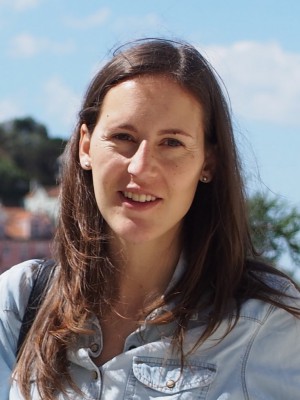resumo
The valorization of seaweeds has generated unprecedented interest in recent years due to their unique chemical characteristics. The taxonomic differentiation between Chlorophyta, Rhodophyta, and Ochrophyta is often supported by their contrasting chemical characteristics. Polar lipids are the most abundant class of lipids in several seaweeds species often labelled as valuable phytochemicals. Nevertheless, little is still known about how the polar lipidome of seaweeds varies within and among different phyla. In this study, the polar lipidome of six seaweeds farmed under controlled conditions in a land-based integrated multitrophic aquaculture (IMTA), belonging to Chlorophyta (Ulva rigida and Codium tomentosum), Rhodophyta (Gracilaria gracilis, Palmaria palmata and Porphyra dioica), and Ochrophyta (Fucus vesiculosus) was characterized using state of the art high-resolution LC-MS analysis. The seaweeds were harvested during the same season and the same time window to control the biotic and abiotic shaping of their polar lipidome. In total, 477 different species of polar lipids (m/z values) were identified and distributed over the six seaweeds surveyed. Only a small group of 35 species of polar lipids were shared among all the seaweed species analyzed in this study. The distribution of the polar lipid species and lipid classes showed a trend towards grouping by phylum although seaweed specie specific polar lipid signatures can be assigned. Matching the data gathered in the present study with those previously acquired showed a speciesspecific clustering, which confirm the uniqueness of these natural biochemical fingerprints. Recognition of the specific lipidome is necessary because polar lipids are assigned with important bioactive properties. This knowledge will allow designing new strategies for chemical tuning during farming so that the yield of target compounds can be improved, and these valuable living resources can fully contribute to the sustainable growth of a blue bioeconomy.
palavras-chave
FATTY-ACID-COMPOSITION; ANTIPROLIFERATIVE ACTIVITY; MARINE MACROALGAE; BETAINE LIPIDS; STARVATION; PLANTS; ALGAE; STEROLS
categoria
Biotechnology & Applied Microbiology
autores
Lopes, D; Melo, T; Rey, F; Costa, E; Moreira, ASP; Abreu, MH; Domingues, P; Lillebo, AI; Calado, R; Domingues, MR
nossos autores
Projectos
GENIALG - GENetic diversity exploitation for Innovative macro-ALGal biorefinery (GENIALG )
Collaboratory for Emerging Technologies, CoLab (EMERGING TECHNOLOGIES)
agradecimentos
The authors are grateful to ALGAplus-Producao e Comercio de algas e seus derivados, Lda. for supplying seaweeds samples. This research was funded by Fundacao para a Ciencia e a Tecnologia (FCT, Portugal), European Union, QREN, POPH, FEDER, and COMPETE by funding CESAM (UIDP/50017/2020+UIDB/50017/2020), QOPNA (FCT UID/QUI/00062/2019) and LAQV/REQUIMTE (UIDB/50006/2020), CICECO (UIDB/50011/2020+UIDP/50011/2020) and RNEM (LISBOA01-0145-FEDER-402-022125) financed by national funds through the FCT/MEC, and when applicable co-financed by FEDER under the PT2020 Partnership Agreement. Thanks to the project Omics 4 Algae: Lipidomic tools for chemical phenotyping, traceability and valorization of seaweeds from aquaculture as a sustainable source of high addedvalue compounds (POCI-01-0145-FEDER-030962), funded by Centro2020, through FEDER and PT2020 and to the project GENIALG-Genetic diversity exploitation for innovative macro-alga biorefinery (ANR-15 MRSE-0015) funded by European Union's Horizon 2020 Framework Programme. Diana Lopes (SFRH/BD/119027/2016) is grateful to FCT (Fundacao para a Ciencia e Tecnologia), Programa Operacional do Capital Humano (POCH) and European Union through European Social Fund (FSE) for her grant. Felisa Rey thanks the Junior Researcher contract in the scope of the Individual Call to Scientific Employment Stimulus 2017 [CEECIND/00580/2017]. Tania Melo thanks the research contract under the project Omics 4 Algae. Elisabete da Costa (BPD/UI51/5042/2018) is grateful for her grant within the framework of Project GENIALG. Ana Moreira thanks the research contract under the project Coccolitho4BioMat - Coccolithophore microalgae biorefinery: an approach for sustainable biomaterials (POCI-01-0145FEDER-031032), funded by Centro2020, through FEDER and PT2020. This work is a contribution of the Marine Lipidomics Laboratory and was also supported by the Integrated Programme of SmartBioR Smart Valorization of Endogenous Marine Biological Resources Under a Changing Climate (Centro-01-0145-FEDER-000018), co-funded by Centro 2020 program, Portugal 2020, European Union, through the European Regional Development Fund.



